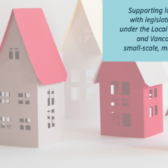Paving the way for large personal income tax cuts in Canada
Large-scale personal income tax cuts could provide relief for working Canadians and lay the foundation for long-term economic growth, finds a new study released today by the Fraser Institute, an independent, non-partisan Canadian public policy think-tank.
“The current debate about tax relief in Ottawa has focused primarily on the size of future budget surpluses, but policy-makers should think big and consider sweeping tax reform to lower the tax burden on Canadians and bolster the economy,” said Niels Veldhuis, president of the Fraser Institute.
According to the study, Reforming Federal Personal Income Taxes: A Pro-Growth Plan for Canada, Ottawa could eliminate many tax credits, deductions and other tax breaks (broadly known as tax expenditures), which would free up $20 billion.
This, combined with expected surpluses in the future, would allow the government to eliminate Canada’s two middle-income tax rates (22 and 26 per cent) and create a new tax landscape, with just two personal income tax rates — 15 per cent for almost all Canadians and 29 per cent for top earners (roughly two per cent of tax-filers).
“Eliminating the middle-income tax rates would mean more take-home pay for middle-class families and broad increases in the incentives for Canadians to work, save, invest and engage in entrepreneurship,” said Charles Lammam, study co-author and associate director of tax and fiscal policy at the Fraser Institute.
Moreover, eliminating or curtailing the myriad tax credits and deductions also simplifies the tax system, reducing the cost of complying with the tax code (accountants, tax-filing software, etc.) for Canadians.
The study also notes additional reform options, which include increasing the highest tax threshold from $136,271 in income to $250,000 and lowering the top rate from 29 per cent to 25 per cent to improve Canada’s overall tax competitiveness and make Canada more attractive to high-skilled workers and entrepreneurs.
This “flattening” of the personal income tax system, notes the study, would reduce the need for so-called “income splitting” where the highest-earning family member shifts income to his or her spouse in a lower tax bracket to reduce the family’s overall tax burden.
“Canada’s federal personal income tax rates, and the income thresholds at which they apply are decidedly uncompetitive compared to the United States and other industrialized countries, and a major tax reform aimed at lowering personal income tax rates would lay the foundation for stronger economic growth,” Veldhuis said.
“With a federal surplus looming and the debate about tax relief ratcheting up, there’s a real opportunity for ambitious, broad-based personal income tax reform,” Lammam said.
The Fraser Institute is an independent Canadian public policy research and educational organization with offices in Vancouver, Calgary, Toronto, and Montreal and ties to a global network of think-tanks in 87 countries. Its mission is to measure, study, and communicate the impact of competitive markets and government intervention on the welfare of individuals. To protect the Institute’s independence, it does not accept grants from governments or contracts for research.

























